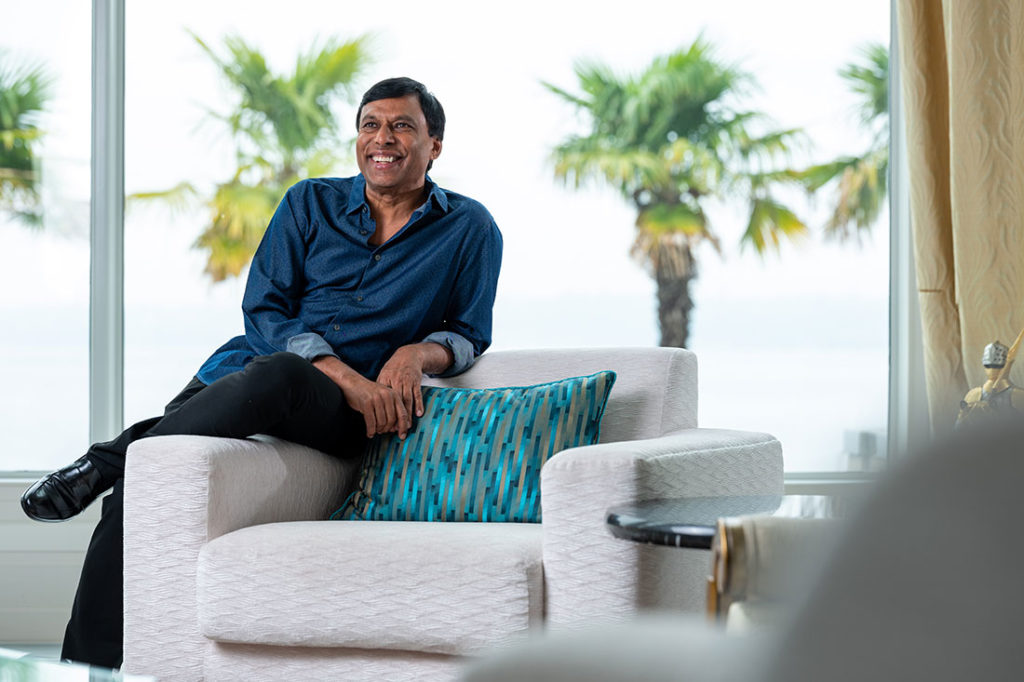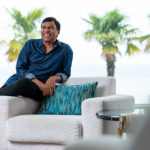For Naveen Jain, the future is beautiful.
He believes that though the nightly news might be filled with war and strife, we’re probably living in the most peaceful period in human history. He thinks that while the global economy is unbalanced and turbulent, even the poorest people on Earth have more than the wealthiest people on the planet did just a few hundred years ago, that by virtually every potential metric, humanity is living better now than we ever have. And, Jain believes, the next decade and a half will usher in sweeping technological advancements that lead to more comfort and an even greater chance for people to pursue their dreams.
“I really think the future of humanity is extremely bright,” the 63-year-old Jain tells me with a warm Indian brogue.
We’re sitting in the home office of his estate along the banks of Lake Washington, just outside Seattle—not far from the homes of Bill Gates and Jeff Bezos. He shows me the meteorites and moon rocks that he’s collected through the years. There are dozens, in all shapes and sizes. One is signed by astronaut Buzz Aldrin. Jain’s assemblage might be the largest private meteorite collection in the world. Before we sat down, he held some of the rocks over a lamp to show me the dazzling sheens and sparkles of the out-of-this-world elements contained in each one.
When he’s not collecting rocks from outer space, Jain spends most of his time, well, running a company that hopes to collect rocks from space, actually. Moon Express intends to mine the moon. His other company, Viome, explores the space inside us all, testing and analyzing gut flora and providing nutritional genomics and dietary advice.
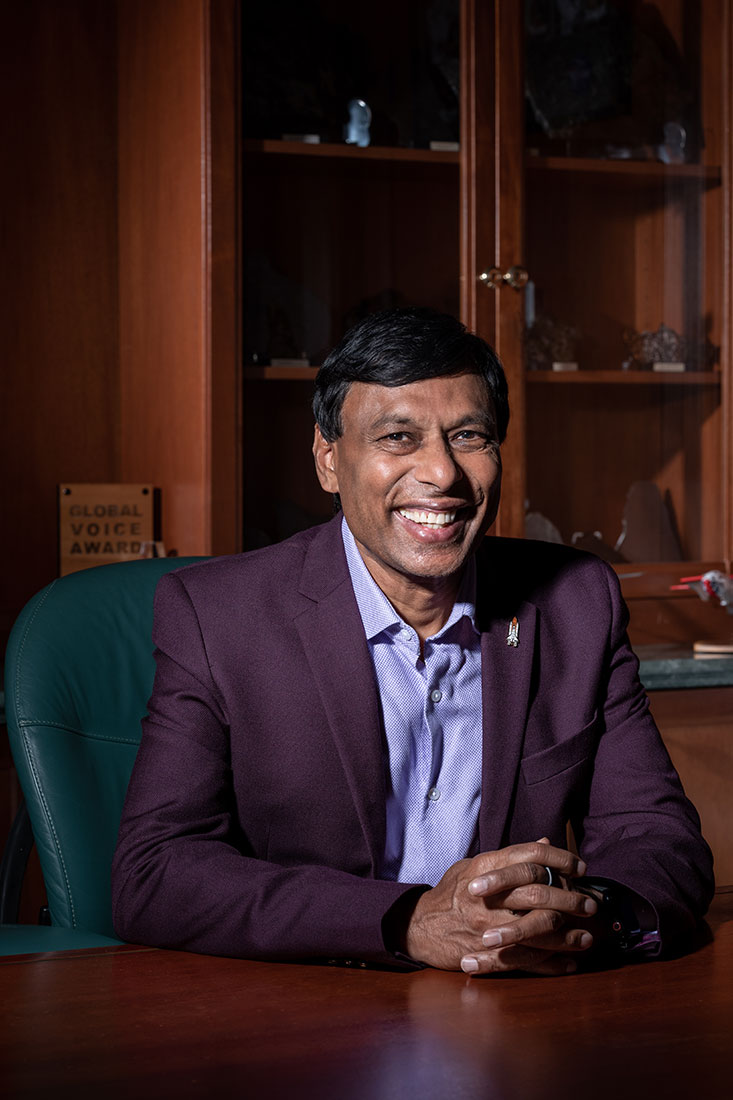
A serial entrepreneur who rose to prominence in the turn-of-the-century dot-com boom, Jain thinks and talks in possibilities and potentials. A conversation with him feels a little like reading a great science fiction novel. As he speaks, he paints elegant portraits of what life could one day become, linked with pragmatic advice for navigating life in the present.
At one point, he tells me to imagine a world where people all have sensors inside and outside of our bodies, each one measuring and analyzing what’s happening internally. When you use the restroom, the toilet analyzes your samples to assess your gut health. The mirror and floor analyze changes to your body and weight.
“Your Alexa devices are hearing your voice and say, ‘I think you sound a little depressed today. What’s going on?’” he asks.
Maybe these instruments, in collaboration, signal the release of a subtle scent that often lifts your spirits. Or maybe, looking at all your data, the artificial intelligence has already sent a prescription to a pharmacy and the medication is on the way to your home before you even realize there’s a problem, much less go to a doctor.
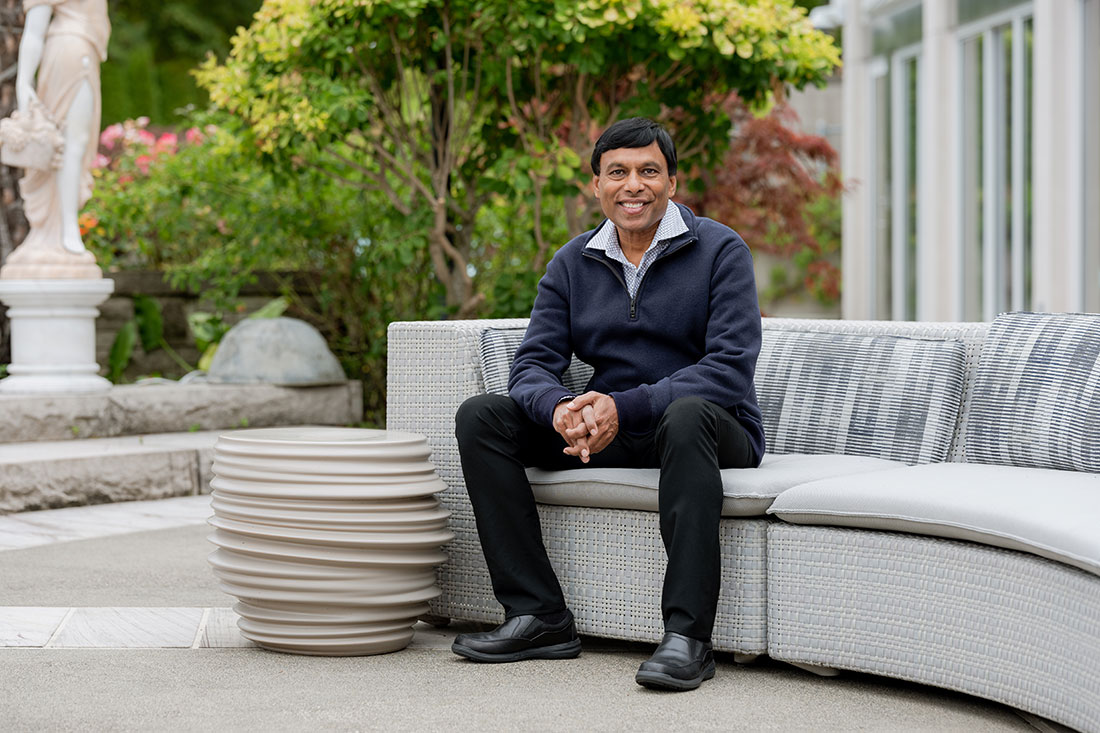
“The constant monitoring of our human body is going to fundamentally change who we are,” he tells me. What if we can get rid of all the chronic diseases? What if people don’t have to have diabetes? What if people don’t have to have heart disease, or depression, or anxiety, or Alzheimer’s, or dementia, or cancer?
“Or even aging,” Jain says. “There is nothing that says the human body must die when it turns 90 or 100. There are whales, turtles that can live for 300, 400 years. There’s no reason for the human body to die.”
I ask him how long he thinks he’s going to live. He ponders for a moment.
“My hope is probably 500 years,” he says. “Maybe 1,000.”
Jain tells me his two favorite phrases are imagine and what if. “Imagine a world when no one is sick,” he says. “Imagine your grandma is walking the mountain. Imagine your grandpa never had to die from cancer. Anytime you can imagine something, you can create it.”
This is why, in 2016, he founded Viome.
“What if we can live in a world where being sick is truly a matter of choice, not a matter of bad luck,” he says. “What if illness is truly optional?”
That’s the driving idea behind the company. Jain believes that by measuring gut health and oral health, Viome can start to assess a person’s cognitive health, brain health and heart health. His goal is to digitize the human body by measuring the trillions of flora living in each person’s digestive tract, then analyzing that data using AI, then delivering completely customized solutions to whatever might be ailing that person. Sometimes that’s specific enough that it involves particular suggestions on what to eat and not eat.
“We can say, ‘Don’t eat broccoli, because your sulfide production is too high, and broccoli contains a lot of sulfate, and that sulfide is causing [a] lot of inflammation in your body,” Jain says.
He says Viome can tell every single person which vitamins, minerals, herbs, digestive enzymes, amino acids, peptides or probiotics they might need and in what doses. The company then makes a customized supplement with only those ingredients, in those dosages, and ships them to customers. He says clinical trials show that Viome significantly lowered customers’ risks for diabetes, depression and anxiety.
There’s another, more altruistic aspect of this endeavor, too, he explains. So far, the company has analyzed about 500,000 people. And with each new assessment, the AI learns more. The way Jain sees it, everyone who signs up, pays a few hundred dollars and adds their data to the compendium is also helping humanity learn more about itself and helping humans get healthier overall.
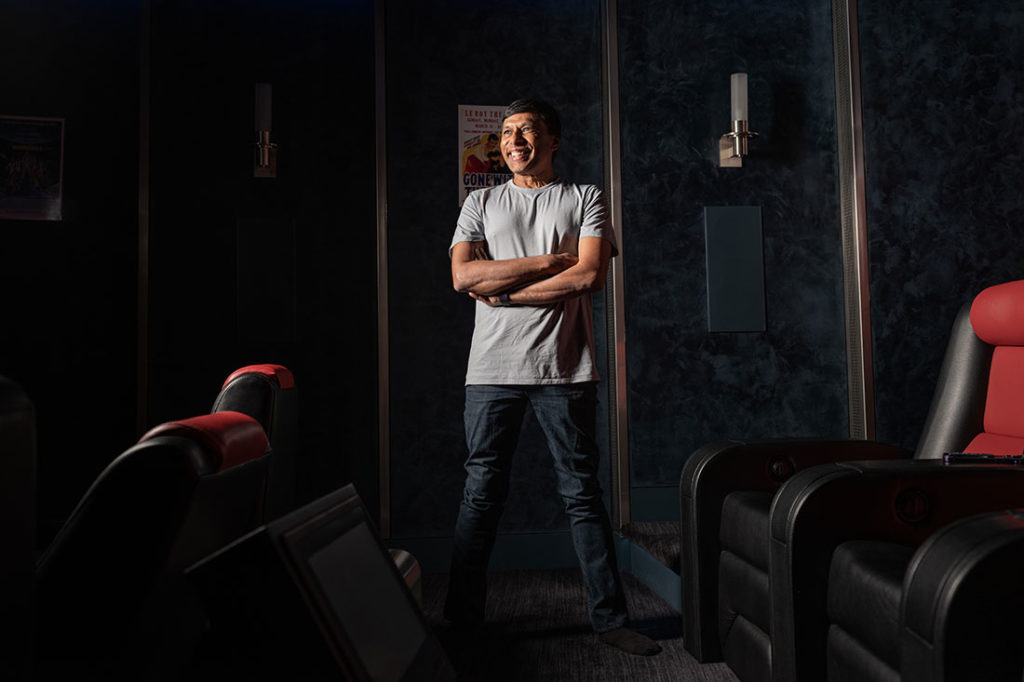
Plus, with every analysis, the entire process gets less expensive. Not so long ago, digitizing someone’s internal health would have cost a million dollars. Then it came down to $10,000. Then $1,000. Now it’s down to $10 or $15—and if he had his way, governments would pay for it as a part of a social infrastructure.
This abundance mindset is one of the principles that govern his thinking. Humanity fights wars over land, water and food. But Jain believes even resource scarcity is a matter of mindset; after all, other planets have these things too. One of the goals of Moon Express is to eventually colonize the moon. As he tells me this, just a few feet from his collection of autographed moon rock, I realize that his ambitions dwarf something as simple as a series of missions to our planet’s moon.
Of course, Jain isn’t a scientist. He isn’t a doctor. His background is in tech. But he believes that’s an advantage when it comes to extending and improving human life.
“This problem can be solved and should be solved,” says Jain, who contends that “no problem has ever been solved by the expert in that industry.” He believes non-experts can look at the problem from the outside, rethink the foundation of what experts take for granted and “disrupt the field in a way that people thought was never possible.”
Jain believes he’s a living example of what’s possible: “I am 63 chronologically,” he tells me. “But my biological age is 50, and, in fact, I have the same energy, if not more energy, than I had 10 years ago.” He’s also lost 25 pounds. “I feel better than ever.”
It doesn’t take much searching to find Jain’s successes and challenges in business and life. He grew up in poverty in India, came to the U.S. with no money and has since started seven different companies. In the mid-1990s, InfoSpace, a company he founded to provide phone directories, maps, games and information on the stock market to websites and mobile device manufacturers, was one of the most valuable corporations on the planet. At the firm’s height, Jain’s personal wealth was estimated to be around $8 billion.
Then the dot-com bubble popped. The price of the stock plummeted. There was a legal dispute and a company settlement. In 2004, a press release from InfoSpace on the matter said that, “On pre-trial motions submitted by the parties, the Court ruled that Messrs. Jain and Marcus did not violate their non-compete covenants or trade secret law, or interfere with any InfoSpace contractual relationship.”
This is all part of life, Jain tells me.
“How do you know you’re alive? It’s because you have a heartbeat.”
I nod.
“What does a heartbeat look like? It goes up and down and up and down and up and down. When it’s smooth, you’re dead,” Jain has often said. “Why would you want to live a smooth life? That’s the life of a dead person. If you want to live a real life, you know you’re going to have downs and you’re going to have ups. When you’re down, all you have to do is hunker down and know that the next beat is going to be up. When you’re on top of that beat, never get too cocky, because remember the winter is coming.”
Instead of financial success or failure, he prefers to measure life in lessons learned and cumulative curiosity.
“The day you stop learning is the day you start dying,” he says. “Every single day, you need to ask yourself: Am I better off today than I was yesterday, intellectually, emotionally, spiritually? How am I better today?”
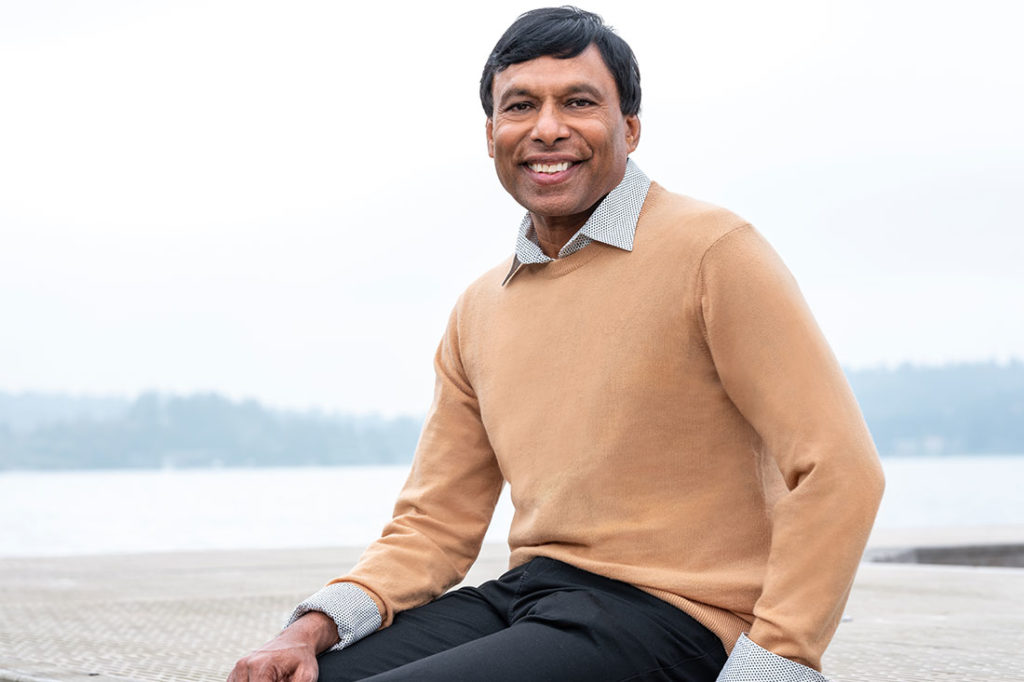
These are axioms he’s lived by for decades, lessons he’s taught his three adult children—all of whom are entrepreneurs now. When they were kids, he says, he and his wife rarely read stories like other parents. Sometimes, instead, they would give the children prompts and have them come up with their own stories.
“We would say, ‘Tell me a story about a monkey, and about an arrow, and a tree.’ And they would have to connect these things together that have never been connected before. And that allows their mind to start imagining.”
He takes a similar approach with both his entrepreneurial and philanthropic endeavors. (Jain is part of both the XPRIZE Foundation and Singularity University, organizations that encourage expansive, imaginative thinking about the future.)
“If you want to create a $100 billion company,” he tells me with a grin, “all you have to do is somehow improve the lives of a billion people.”
While I’m at his house, Jain shows me the dock where he keeps his speedboat. He shows me the beautiful living room and den, decorated with ancient Egyptian artifacts. He takes me to the upstairs movie theater, with several rows of incredibly comfortable reclining seats that also vibrate. (He says he usually uses the space to work, projecting his computer screen onto the massive movie screen instead of watching anything.) Then at some point, he tells me why he does what he does—and he stresses that it’s not about the money.
“Think of how it would change what we do, how we interact, if we knew we were going to live for 1,000 years,” he says. If you knew someone would be in your life for several centuries, you might be more considerate, more honest, less likely to make enemies. The trivial struggles of any one day might seem less significant.
“People think that you get to enjoy your life because life is short. Well, life is only short until you extend it,” he points out, “and once you extend it, it’s no longer short.”
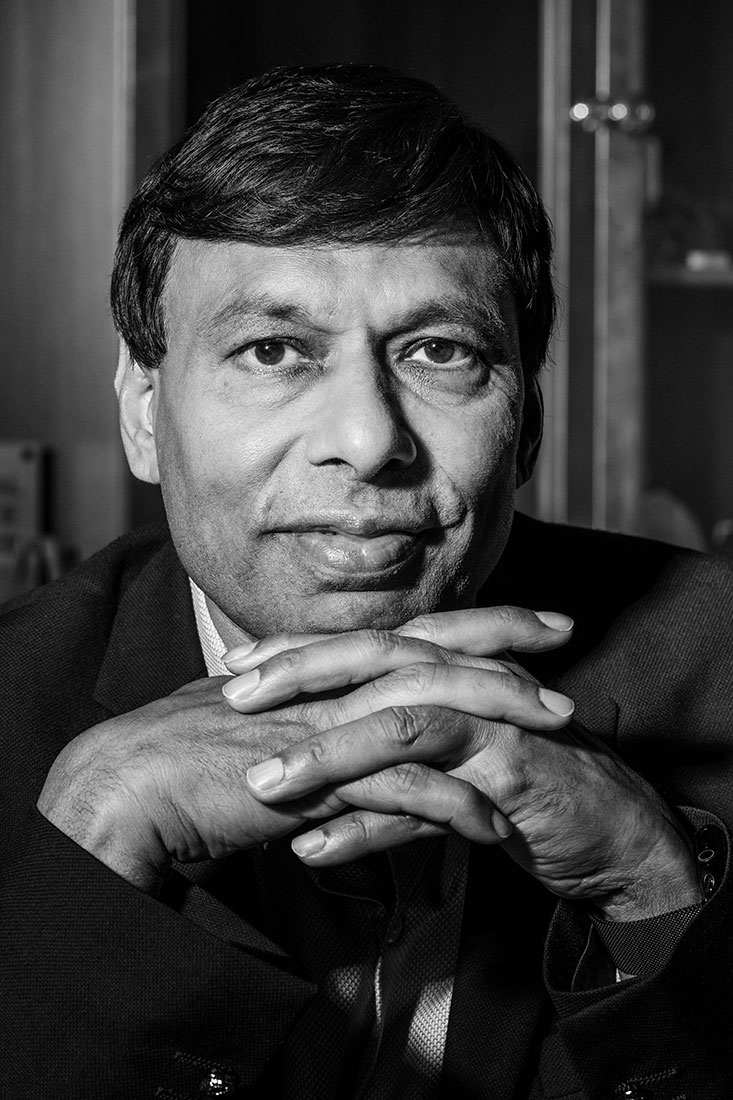
Maybe Jain will achieve his goals. Maybe he’ll live for 1,000 years. Either way, it’s nice to think about overcoming death, about eliminating the painful, as-of-now-inevitable departures of our friends and family. There’s something inspiring about the idea of living centuries longer than humans have ever lived and the way that might change our approach to everyday interactions. He says the things we want to believe. He shares a dream, presented with so much passion, that makes just imagining feel good. In that way, it doesn’t matter if he accomplishes what he hopes to.
Before I go, he shares another aphorism about the future—something that’s simple but also inarguable.
“You get to create the future,” he reminds me. “The future is what you want it to be.”
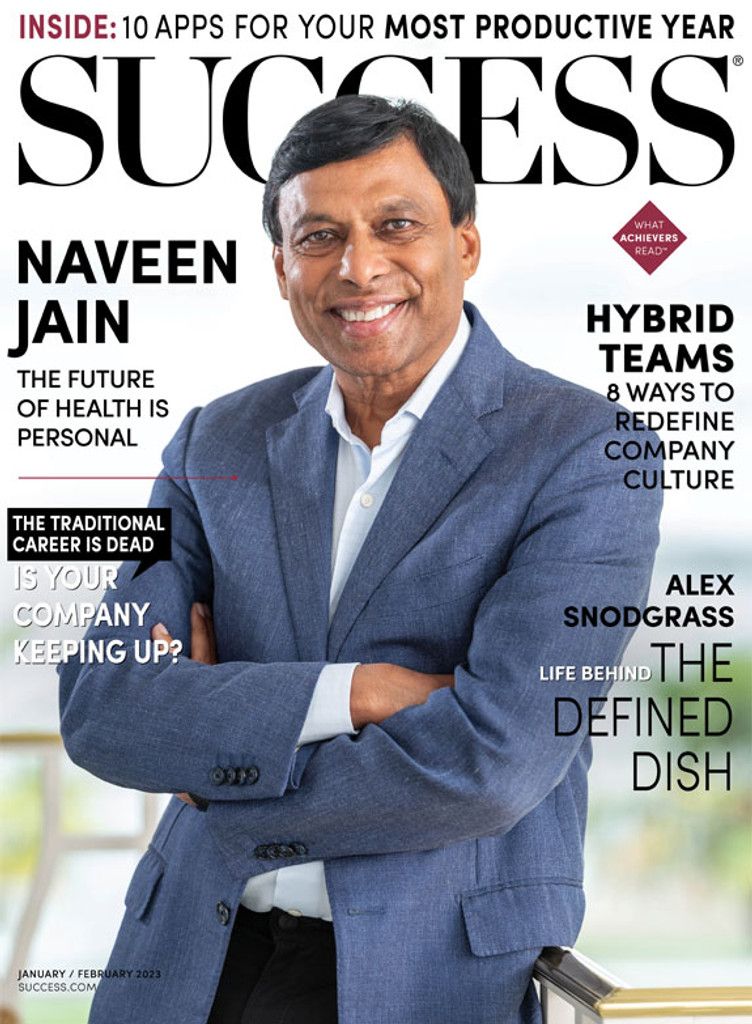
This article originally appeared in the January/February 2023 issue of SUCCESS magazine. Photos by Mike Davello



